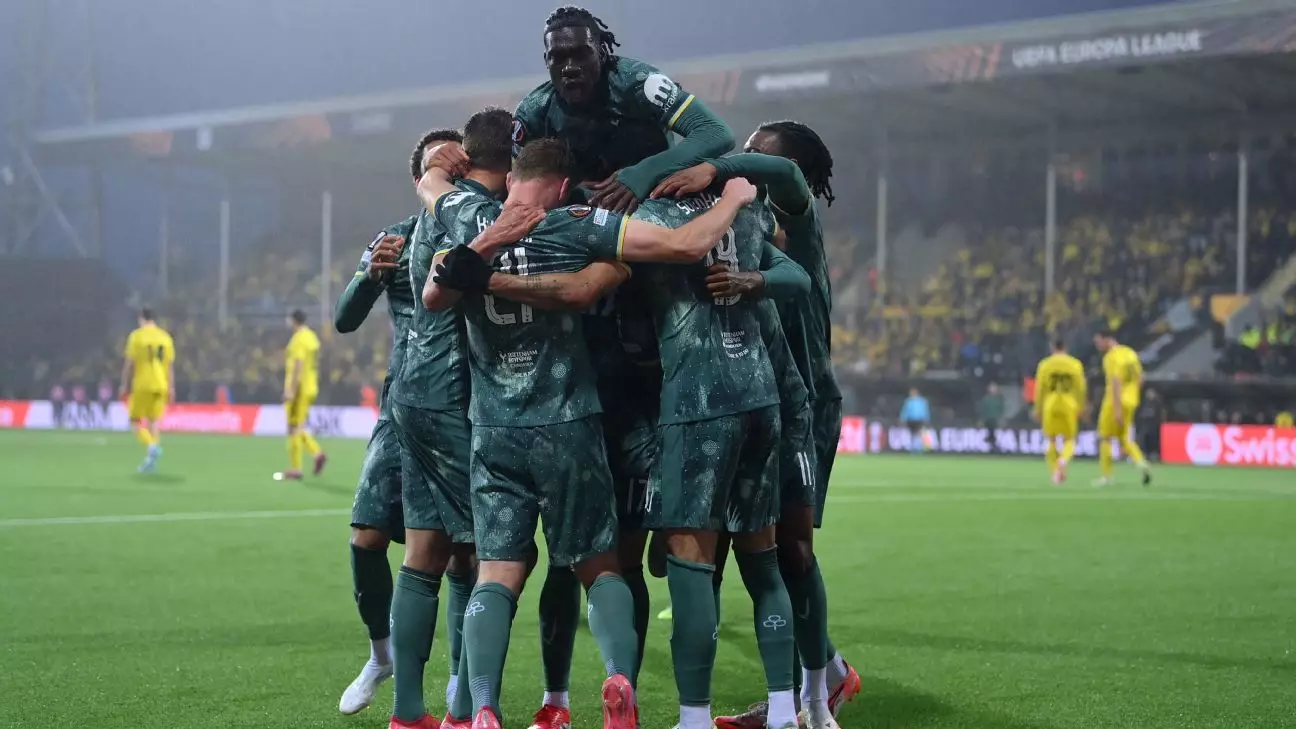Ange Postecoglou stands at a significant crossroads in his managerial journey with Tottenham Hotspur, steering a team that desperately attempts to shed the infamous “Spursy” label that has clung to its reputation for decades. Since his appointment nearly two years ago, Postecoglou has been unequivocal in his ambition to redefine what the club represents—turning the tide on a narrative that has depicted them as perennial underachievers. As rumors swirl around his potential exit, the Australian’s focus on the UEFA Europa League final is a testament not only to his tactical acumen but to his unyielding resolve against a backdrop of skepticism and criticism.
Against the Odds: A Growth Narrative
At the heart of Postecoglou’s philosophy lies a fundamental belief in resilience and adaptability. His recent triumph against Manchester United in the semi-finals exemplifies this. Winning decisively on aggregate despite facing a well-established rival showcases that Spurs can step up when it matters most—a narrative transformation for a team often derided for capitulating in crucial moments. The encounters against Bodø/Glimt highlighted the potential of Spurs under Postecoglou’s tutelage, showing a team capable of solid defensive work while still possessing the ability to strike effectively when opportunities arise.
The win in Norway was emblematic of a team that wears its scars proudly. The mindset shift is palpable; the previous tendency for flamboyance gives way to a more measured approach—an essential quality when facing formidable European opposition. By extracting crucial learnings from knock-out stages, Spurs have evolved from a side that would often rely on moments of magic to one that approaches matches with tactical discipline and focus.
Breaking the Chains of ‘Spursy’ Football
It cannot be overstated how critical Postecoglou’s work is in addressing the perception of “Spursy” football. This label implies a cyclical nature of hope followed by disappointment, entrenched in the psyche of players and supporters alike. Yet, under Postecoglou’s leadership, the team’s ability to grind out results and maintain composure in tough situations severely undermines this narrative. When he asserts that the league position holds little relevance in the quest for silverware, he challenges a status quo that demands constant evaluation based on league standings alone. This stance reflects a more profound understanding of football: that individual cups can herald achievements as significant as league titles.
Hailing from a background that values both pragmatism and strategic surprise, Postecoglou has shown that winning is the ultimate remedy for the ghosts of past failures. Celebrating the team’s journey, he places vital importance on the cup run, framing it as a vehicle to not just win trophies but also to establish a new identity—one that visitors to Tottenham Hotspur Stadium will recognize as formidable and not to be trifled with.
Fortress Or Fortress of Solitude?
The home ground of Bodø/Glimt may be a fortress for the Norwegians, but it also served as a proving ground for Spurs—a test of endurance amid unique challenges like artificial turf and unforgiving temperatures. The away win reflected a deliberate tactical maneuvering rare for a side historically characterized by flair over fortitude. This evolution begs the question: has Postecoglou downplayed the entertainment factor in favor of results, or has he simply found a way to marry the two?
There lies an undercurrent of evolution in Postecoglou’s style. He has taken the criticism of his earlier tactics to heart, steering the team towards a blend of solidity and menace. Games that were once seen as hopeless paradoxes—beautifully chaotic but ultimately disappointing—are being transformed into a more balanced equation. The triumph in the semi-final was not just about reaching a final; it was an awakening to the fact that Spurs can, when they choose, engage with European adversaries on equal footing without sacrificing their identity.
Going for Glory: The Search for Respect
Despite the looming specter of a troubled league campaign overshadowing their European prospects, the real focus is on legacy. Postecoglou has invoked a sense of urgency that echoes through the hearts of the Tottenham faithful—a chance to rewrite history and banish the “Spursy” narrative once and for all. By targeting the ultimate prize, the manager not only aims for silverware but also seeks to restore dignity and reverence that the club and its supporters once enjoyed.
This ambition resonates beyond mere trophy acquisition. It is emblematic of a collective desire to reshape their identity, proving the doubters wrong and challenging an unfairly positioned narrative. Ultimately, under the leadership of Postecoglou, Spurs find themselves at the precipice of potential greatness—undeniably more than the sum of their past and undaunted by lingering shadows of disappointment. The final step remains, the ultimate test in their quest for both redemption and respect.

